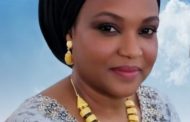It is mourning time again for an individual beyond the spatiality of the nation-state on account of the force of his scholarship and internationalist practices. That is Professor Bjorn Beckman, the Swedish political economist and internationalist who passed away yesterday evening. His passage brings to three, such remarkable individuals who died in the past one year plus. In August 2018, it was Samir Amin, the Egyptian political economist who died at the age of 87. In August 2019, it was Immanuel Wallerstein, the American Sociologist and ‘world system’ theorist of capitalism who passed away at 88.
Although details of deterioration in Beckman’s health had filtered in much earlier in certain circles in Nigeria, his death still came as a surprise. Since November 2nd, 2019 when the details started filtering in, the traffic in communication to his family across Africa has been tremendous. Intellectuals, activists and associates with whom he was involved in scholarly cum radical activism tried to connect with the family that were then said to be all at his bedside as he lay weak and tired. One such associate who did so said he was still coming to terms with what seems like the end.

 His ideological convictions would have no space for stardom but he, indeed, became a star in his role in the ferment of radical academia that developed from around the mid 1970s and particularly at the Ahmadu Bello University, Zaria where he taught Political Science along with others such Okello Oculi, Sam Oyovbaire, Ibrahim Gambari, Yusuf Bangura, Wang Metuge, Bala Usman and a host of others.
His ideological convictions would have no space for stardom but he, indeed, became a star in his role in the ferment of radical academia that developed from around the mid 1970s and particularly at the Ahmadu Bello University, Zaria where he taught Political Science along with others such Okello Oculi, Sam Oyovbaire, Ibrahim Gambari, Yusuf Bangura, Wang Metuge, Bala Usman and a host of others.
His stardom lay in creative interpretation of orthodoxy and successfully situating local dynamics in the contradictions of global capitalism and the balance of forces thrown up in each case, especially in agriculture, the resistance politics of various flanks of popular interests such as labour, academics, students and peasants. He brought vigour and verve to doing this within the professional and institutional context of the academia in the university system in Nigeria in the mid 1970s to the mid 1980s when the system started unraveling.
But even then, it is impossible localizing him as a Nigerian phenomenon as his scholarly radius extended to Ghana on which he wrote his PhD thesis, Zimbabwe where he collaborated with fellow academics and South Africa where he did academic works on defining aspects of an emerging society, particularly democratization, the space of labour and the incipient state.
It is debatable, however, if he wrote on any other spatiality as much as he did on Nigeria, with his own way of framing the subjects he treated. Some of the most memorable titles would certainly include “Imperialism and Capitalist Transformation: Critique of a Kenyan Debate” 1980; “Imperialism and the National Bourgeoisie” 1981; “Whose State? State and Capitalist Development in Nigeria” 1982; “Marxism and Underdevelopment: A Critique of Ake” 1983; “The Military as Revolutionary Vanguard: A Critique” 1986; “The Post-colonial State: Crisis and Reconstruction” 1987; “The Liberation of Civil Society: Neo-liberal Ideology and Political Theory” 1993. There are, of course, the immensely popular book he authored along with Gunila Andrae, the geographer and his life-long partner. A comprehensive listing of his publications would show a massive total, even on Nigeria alone.
It remains unimaginable what would happen were it practicable for his body to lie-in-state at the old Faculty of Arts and Social Sciences, ABU, Zaria. It is certain that former students, associates, his critics as well as admirers will troop there from all over Nigeria. Even now that his body is nowhere near Nigeria, Muhammad Sanusi 11, the Emir of Kano is declaring him a great friend of Nigeria and Kano. “Like his compatriots before him including Yusufu Bala Usman , Patrick Wilmot, Mahmud Tukur, Raufu Mustapha and Sanusi Abubakar, among others, we have lost another gem. All of these towering intellectuals were active participants in that vibrant debate the likes of which have now disappeared from Nigerian academic circles- a real tragedy”, said the Emir in a message someone graciously obliged Intervention.

An angle on the University of Stockholm where Prof Beckman was based
The Emir would appear to have made the point: vibrant debate the likes of which have now disappeared from Nigerian academic circles. That is probably why Prof Beckman and all the big names that were active participants in that process will keep coming back to memories because the society is not replacing them. Indeed a tragedy that it will be a miracle to find any set of students of Economics, Political Science, Sociology, Development Studies, Geography, History or Anthropology in the universities who can say much about such definitive works as Eskor Toyo’s “The Mode of Production ‘Nucleus’ as Integrator of Economic and Political Sciences”; Peter Ekeh’s “Colonialism and the Two Publics in Africa: A Theoretical Statement”; Segun Osoba’s “The Deepening Crisis of the Nigerian National Bourgeoisie”; Alison Ayida’s The Nigerian Revolution; Segun Osoba and Bala Usman’s Minority Report and Draft Constitution for the Federal Republic of Nigeria, 1976; Ake’s The Political Economy Approach and his Revolutionary Pressures in Africa; Okwudiba Nnoli’s Ethnic Politics in Nigeria; Bala Usman’s For the Liberation of Nigeria; Jibrin Ibrahim’s “Towards the Political Economy of Mass Communication in Nigeria: Some Parameters for a Theory and an Investigation”; Yusuf Bangura’s “Nationalism, Accumulation and Labour Subordination in Nigeria: 1970 – 78”.
Others would be Terisa Turner and Pade Badru’s “Oil and Instability: Class Contradictions and the 1983 Coup in Nigeria”; Raufu Mustapha’s “Critical Notes on the National Question: Practical Politics and the People’s Redemption Party”; Attahiru Jega edited Identity Transformation and Identity Politics Under Structural Adjustment Programme in Nigeria; Okello Oculi’s Discourses on African Affairs: Directions and Destinies for the 21st Century”; Eghosa Osaghae’s “The Persistence of Conflict in Africa: Conflict Management Failure or Endemic Catastrophe?” and Festus Iyayi’s “Assassins of Nation Building, 2011 Elections and Electoral Reforms in Nigeria: Chronicles of a Death Foretold”
Each of these works set an agenda that remains distinctive and are in need of further exploration.
Perhaps, Bjorn Beckman hasn’t finished his tour of duty in Nigeria yet. If his death sparks a review of the grand logic of his intellectual exertions in the country as is most likely, then the values of great communication, combative scholarship grounded in justice, fundamental democratic principles and defence of the rights and interests of the poor and disadvantaged that Dr. Yusuf Bangura credits Beckman can still be realized. Bangura was a key participant in the ferment in Zaria where radical scholars converged in those days similar to the University of Dar es Salam in Tanzania where the Dar Debate took place then. All the achievements of those days appear to have gone with the winds. What happened to Nigeria in Nigeria?
May Prof Bjorn Beckman’s soul rest in peace!




























